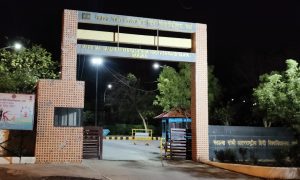In using terms, we often do so interchangeably without truly understanding the meaning behind it. However, the quintessential nature of a word can make a world of difference. Such is the case of teaching and coaching.
In most cases, people wouldn’t bat an eyelid if you’d use the word teaching instead of coaching or vice versa. And why would they, they both seem to mean the same thing. That is, giving instruction to a student. But by nature, they both fulfil different roles and serve different purposes.
Teaching
As we already know, teaching is the imparting of new knowledge or instructions to someone else. As a profession you probably imagine a teacher as someone who educates students in a school, but that’s not necessarily true. A teacher is a subject expert who imparts knowledge; an experienced professional. However, the line between a teacher and a coach is drawn at their relationship with the student. Teachers help students learn and that’s the end of it. Teaching is focused on imparting knowledge and learning, where the teacher is in charge of the interaction. It has little to do with the student as an individual.
Coaching
Coaching is centred around the student. Coaches focus on the development and guidance of students. In a way, coaches help students grow as individuals, enabling students to refine their skills and find direction. Coaches, just like teachers, guide a change in students, be it through education, knowledge or advice. However, here’s where the key difference lies, a coach’s guidance is entirely dictated by the student. Coaching is about helping the student bring out what they already have or know. And that’s how coaches help students change without dictating the change themselves.
Teaching guides with knowledge and advice acquired by the teacher, coaching guides with knowledge and advice, which is based on the individual.
So is a coach a teacher or a teacher a coach?
Well, no. They can’t both exist at the same time. This distinction that we’ve just established is less about discriminating between the two, and more about understanding and appreciating the ‘coaches’ in our lives. Nonetheless, it’s important to understand that teachers are still facilitators of knowledge.
It’s a tough call, but when a teacher has to stand in front of class of 30 or more students, it becomes hard for that individual to divide his or her attention and guide each student individually. What results is the imparting of knowledge as is, unmodified to give preference to any student. But at the end of the day, a teacher can impart knowledge to thousands while a coach will probably never reach such high numbers.
Ideally, it would serve the world better to have more coaches than teachers, but that is just an indicator of the flaws of our current system. The importance needed in and for education is understood by just a few.
Coaches can help bring out the best in students and coaching is not just restricted to academics; coaches can be related to sports, talents and even life itself.
As a profession, we’ve probably underestimated the value of those who call themselves coaches. Which is not to say that we haven’t misunderstood many teachers, who may have actually coached us.
Coaching is a cycle; the job doesn’t end after instruction. Coaches begin by teaching students, they then observe how and what the students learn and then re-evaluate the teaching approach to provide a better understanding.
What does it mean for the educational community?
Whether you refer to them as teachers or coaches, not much changes. But it’s in understanding the role they play, that we can give the interaction meaning. Coaches are dedicated individuals, utilizing their time to help us prosper.
If the educational community could have more coaches, would it mean more prosperity? Maybe. But to thoroughly understand the content of that question, let’s go back to square one.
It’s a tough decision to make, when instructors have to decide on what role they will play. Will they be a coach or a teacher? Will they educate the masses or nurture just a few? The truth is, every teacher has the potential to be a coach. Subject experts as they may be, they still have the capacity to bring about a change. In teaching the many, I’m sure they’ve coached a few. So, while the words aren’t interchangeable, the roles can evolve. Teachers may be coaches to a few.
Coaches can’t coach the masses; they’re restricted by the very characteristics that define their potential. It’s impossible for one individual to carefully observe and provide feedback to many students at the same time. However, a teacher can coach a few students. There are more teachers out there in the world than there are coaches. It would greatly benefit the world, even if each teacher could coach a few students every now and then.
In conclusion, our roles today are defined by our actions. What we do can change who we are. As individuals that are a part of a greater community, it would do us no harm to invest a bit of our time for the success of another. A teacher today can be a coach tomorrow.
Irrespective of what we’re referred to, the nature of the roles we play is decided by us.






















 WhatsApp us
WhatsApp us